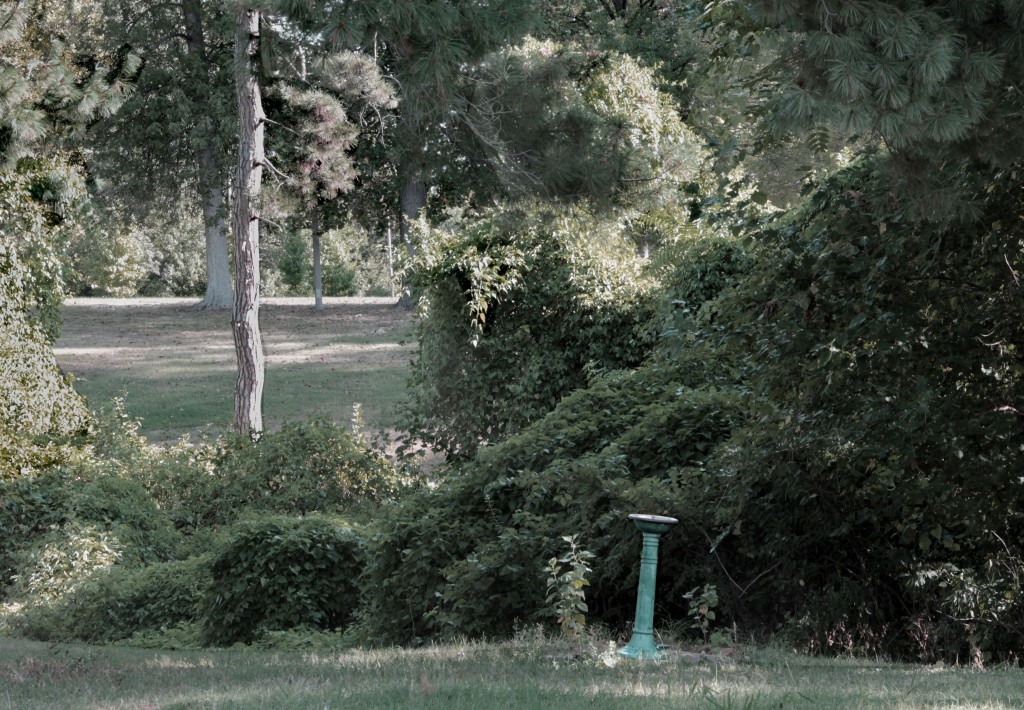I didn’t write anything for yesterday’s commemoration. Many others, most far better suited to memorializing the day, said a great deal. My paltry mutterings would add little to what is, really, a personal day for most of us. Like all the big anniversary events, the “where were you when” aspect makes it personal and maybe that’s the most important part, I don’t know.
Instead it occurred to me to say something about the element of the disaster that puzzles most of us, even while most of us exhibit the very trait that disturbs us deeply in this context. One of the most common questions asked at the time and still today is in the top 10 is: how could those men do that?
Meaning, of course, how could they abandon what we consider personal conscience and common humanity to perpetrate horrible destruction at the cost of their own lives.
The simple answer is also the most complex:Â they were following a leader.
I’m going to string together what may seem unrelated observations now to make a larger point and I will try to corral it all together by the end to bring it to that point.
Firstly, with regards to the military, there are clear-cut lines of obligation set forth, the chief one being a soldier’s oath to defend the constitution. There is a code of conduct consistent with that and we have seen many instances where an officer has elected to disobey orders he or she deems illegal or immoral. There is a tradition of assuming that not only does a soldier have a right to act upon conscience, but that there is an institutional duty to back that right up. The purpose of making the oath one to the constitution (rather than to, say, the president or even to congress) first is to take the personal loyalty issue out of the equation.
To underline this a bit more, a bit of history. The German army prior to WWII was similarly obligated to the state. German soldiers gave an oath to protect Germany and obey its laws. Hitler changed that, making it an oath to him, personally, the Fuhrer. (He left in place a rule explicitly obligating the German soldier to disobey illegal or immoral orders.)
Unfortunately, human nature is not so geared that people find it particularly easy to dedicate themselves to an abstract without there also being a person representing it. (We see this often in small ways, especially politically, when someone who has been advocating what is on its own a good idea suddenly comes under a cloud of suspicion. Not only do people remove their support of that person but the idea is tainted as well. People have difficulty separating out the idea from the person. The reverse is less common, that a bad idea taints a popular leader.) Dedicating yourself to supporting the constitution sounds simple in a civics class, but in real life people tend to follow people. (Consider the case of Ollie North, whose dedication to Reagan trumped his legal responsibility to uphold the constitution and its legally binding requirement that he obey congress.)
Next example. Many years ago, when I was still a teenager looking for a job, I answered an ad for a salesman position. When I arrived for the interview I found myself in a large room with a group of people all of whom were receiving a sales pitch for the product by one man, who was doing a first-rate job of boosterism for it. It was a reference book, maybe even an encyclopedia, I don’t clearly remember. But his pitch was to our potential to make a lot of money selling this product, that it required dedication and belief in ourselves and what we were selling. He was a good speaker, he got people fired up.
But he didn’t say much about the product. My questions concerned that and what it would mean for the consumer, but except for the most cursory description, he talked very little about it. He summed up his twenty minute pep talk by asking if there was anyone still not convinced this would be a good job. I and a couple others raised our hands. When I did so, I expected to be given an opportunity to ask about the product.
Instead, he gave us a sad look and said “Well, then I’m afraid I’m going to have to ask you to leave.”
I was stunned and, by the expressions on the faces of the others who’d raised their hands, so were my fellow skeptics. I said, “You’re not going to ask why?”
“Please leave,” was all he said.
Dazed, we left. I realized much later that what he—his company—were looking for were people who, for their own self-betterment, would be willing to sell anything to anyone. They did not want skeptics. It might have been the greatest encyclopedia on the planet, but that didn’t matter.
The Joyce Meyer Ministries are in town this week, apparently. This is an institution that makes an overt connection between religious fealty and material success. People give great amounts of money to it to “spread the word” and some of them achieve a certain amount of success.  As with other grandstanding televangelists, the claim is certainly true for herself, her family, and closest associates, but many people have given everything to her and ended up with nothing. The deeper question, though, is why would anyone continue to give to her institution if, as she claims, it is faith that actually pays off? Can’t that be handled privately? Or in another church or institution?
Which of course leads one to wonder at the elasticity of the faithful with regards to those ministers who have been exposed as frauds. I have no real question as to the motives of people like Jim Bakker or Ted Haggerty or Jimmy Swaggart or even Oral Roberts and Pat Robertson. I do have deep questions about those who continue to follow them despite revelations of impropriety and fiscal deceit and self-aggrandizement.
I had a customer once who was part of the Democratic Party machine in St. Louis and as long as you weren’t talking about politics he was a good guy. But when elections were upon us, he would come in an just go on about this candidate or that, and always with the same “We’ve got to see him elected!” One year he was working on behalf of someone who had obvious credibility problems (and later was indicted), but his dedication was absolute. When I pointed out the problems with the candidate, he just looked at me like I had lost my mind. “But the alternative is a Republican!” So what? I said. Better an honest Republican than a crook. The subsequent harangue I received made it clear that it did not matter who the candidate was or what he or she did, as long as they were Democratic there was simply no question of his support.
I watched people I knew become absolutely enamored of Ronald Reagan, almost from the start. As his presidency went on and problems emerged, some simply would not abandon him. They had dedicated themselves to the man and it didn’t matter what he did. He made them feel “like a real American.” There are people still who think Nixon was framed and those still who, despite detailed information about his personal life and his presidential decisions think that Kennedy walked on water. No doubt there will be those who think Bush was one of the greatest presidents ever.
When we ask ourselves about the motives behind 911, this all-t00-human flaw must be at the top of the list. The men who hi-jacked those planes and wreaked all that havoc had been living here. They saw the people in their neighborhoods, they spoke to us, they breathed our air—and while I am not one of those who sycophantically hold the United States up as the shining model of political perfection and social maturity, by comparison this is a free country, a good country (which makes our failings and shortcomings all the more painful, because we have fewer excuses)—and yet they did that. It is legitimate to ask “where were their consciences? Where was their skepticism? Where was their ability to make valid judgments?”
Many would like to believe that such men are so different that they cannot be understood. They weren’t rational, they weren’t “normal,” they weren’t Like Us.
No? How many of us questioned Bush’s program? How many of us on this day ten years ago would not have backed his program? Even in Congress, very few stood up to say “Wait a minute, what are we doing?”
Yes, I know, it’s more complicated than that. And it is. But then, it’s more complicated for the other guy, too. And yet, it comes down to something very similar—go where the leader tells you to, do what the leader orders. Ask no questions, after all the leader knows best.
Cults work because people want to follow a leader. They have little trust in their own decision-making abilities, little confidence in their own ideas, even their own personalities. On some level, the need for validation from a guru is essential for their ability to even get out of bed in the morning. And I’m not talking about Moonies or Krishna or even the Sword and the Arm of the Lord or Aryan Nation, I’m talking about ordinary people with normal lives who dedicate a part of their psyches to an external source of affirmation. It can be anything from a favorite musical group to a politician to a preacher, or even something as intimate as a lover or a friend, or something both intimate and impersonal, like AA or Alanon or a survivor’s support group. What makes this hard is that the tendency is not always bad but sometimes is very positive, very necessary.
It is all-too-easy to hand over too much of yourself to someone else because it is easier than doing the necessary work for yourself. Most of us do something like this at one time or another, probably a lot of us transfer our dedication from one thing (or person) to another regularly, in a kind of psychic load-sharing routine. But some of us simply invest everything in one place, one person, and surrender our ability, even our right, to withdraw, to question, to say no when a demand becomes unreasonable or the relationship toxic.
I don’t believe in people that way. I don’t believe in anything that way. I don’t draw my validation from a blind commitment to a guru. I did at one time but I grew out of it and now I find it bizarre when I encounter someone who does that to the point of being unable to accept criticism of the little god at the center of their being.
Which has led me to understand a reaction I’ve had for a long time. Maybe we’ve all felt this. When someone comes up to you and starts going on about how so-and-so or this-and-that saved their life, is the greatest thing ever, is the reason they function, I—and probably most everyone—automatically pull back, suspicious and a bit uncomfortable at the protestations of fealty. I get uncomfortable around the hyper-patriotic and the extremely religious who insist on telling you how much they love their country or their god. I wrote a little about that here. I feel, justifiably or not, that they aren’t quite rational about this and maybe not quite reliable. If the choice came between doing what was right and following their guru into hell, what would they do?
I don’t like that feeling, but I think I understand it now. That level of dedication to something external suggests to me that they aren’t all there, that they’re using that dedication to make up for an absence of Self, and not just any self, but the self that can act independently of blind faith. I find I don’t entirely trust them.
And it could be a lack of trust about almost anything. When faced with that kind of dedication, I find myself almost automatically shutting down certain lines of communication, self-censoring, placing certain topics off-limits. I don’t know what kind of reaction I’ll get if I say certain things. I don’t know what this person will do if they feel I threaten their guru. Most likely cut off similar lines of communications with me.
But that apparent inability to separate out a personal zone of skeptical self-awareness from the object of their obsession tells me that they will not always act on rational premises. Actions may take the form of insisting certain books be removed from library shelves all the way to…flying planes into skyscrapers.
The 911 hijackers had to indulge a kind of interpretive censorship about everything they saw or heard in this country during their stay. But it was an interpretation based not on their personal standards of right and wrong, their own skeptical assessment, but on what they had been told they would see by their guru. Their guru used their culture to reinforce his vision and they had surrendered enough of themselves to his vision that they committed an atrocity.
The difficulty in all this is that we all interpret things based on who we listen to and what we’ve heard. What the hijackers did, up until the moment they boarded those planes, was not particularly different from what any group does that is dedicated to a cause that seems to run counter to the larger culture. Eco-terrorists go through the same processes.
I have always held myself apart from the influence of gurus. Or tried to. I will use my own judgment, thank you, and often it puts me at odds with momentary protestations of fealty for ideas or persons that I might even agree with, at least in part.   It’s hard work, continually reassessing—which part is me and which is them—and I can understand the impulse of hermits to extract themselves entirely from a culture in order to try to find which is which. But that doesn’t work, either, because we need feedback in order to perfect judgment.
The lesson of 911 for me was not new but came with added force: it is never good to follow a guru. You may agree with someone, work with someone, associate yourself with their ideas, even like them, but trailing along after them like children after the Piper is never good. Because you must always be able, when they one day turn to you and say “You have go do X for the cause,” to tell them no. You have to be able to do so even if you don’t. You may judge that what they’ve told you to do is a good idea—but you must make your own judgment. It’s a pretty safe bet that if they tell you to go kill a bunch of people in the name of X, they do not have your or anyone else’s best interests at heart.
That goes for gurus, cults, churches, and governments.










